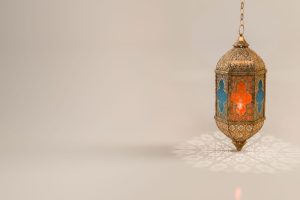
I truthfully declare that ill-thinking is a most evil affliction. It destroys a person’s faith and throws them far away from sincerity and truth. It turns friends into enemies. In order to attain the excellence of the truthful (siddiqin), it is necessary to strictly refrain from ill-thinking. If one begins to think unfavourably about a certain person, one ought to seek forgiveness from God profusely and make supplications before God Almighty, so that one may be saved from this sin and the evil consequences which follow through from ill-thinking. One must not deem this a light matter, for it is a terrible illness, which will cause a man to perish in the swiftest of ways.[1]
In short, ill-thinking destroys a man. This is to such an extent that when the hell-bound are cast into hell, Allah the Exalted will say that your sin was that you thought ill of Allah Almighty. There are certain people who believe that Allah the Exalted will forgive the wrongdoers but punish the righteous. This is also to think ill of God Almighty because it contradicts His attribute of justice and implies that virtue and its outcomes – as appointed by God in the Holy Qur’an – have been wasted, as though they were futile. Bear in mind, therefore, that the ultimate end of ill-thinking is hell, so do not consider this to be a minor illness. For ill-thinking results in despair, despair results in transgression, and transgression results in hell. It is a thing that cuts at the root of truth and sincerity (sidq). Therefore, abstain from this vice and offer supplications to attain the excellences of one who is truthful (siddiq).
Hazrat Mirza Ghulam Ahmad (as), Malfuzat – Volume II (Farnham, Surrey: Islam International Publications Ltd., 2019), 85-86.
ENDNOTES
[1] Al-Hakam, vol. 9, no. 14, dated 24 April 1904, p. 2.




Add Comment